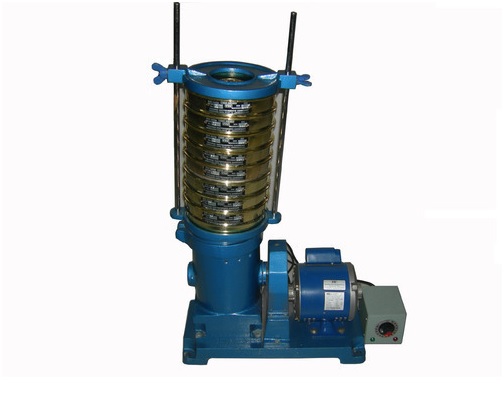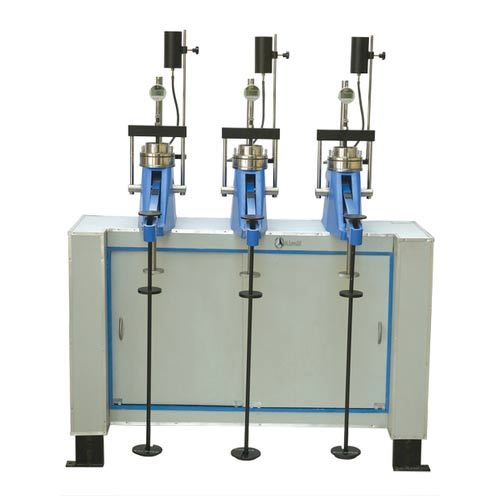
Direct Shear Test Apparatus Electronic
The Direct Shear test is carried out with an apparatus consisting of a square divided into two halves. The specimen, contained in the box, is subjected to a constant normal load while an increasing horizontal force is applied to one of the sections of the shear box. This force causes a shear failure along the junction between the box sections. The shear force and the normal load are measured directly. The rate of strain is adjusted by the speed of the horizontal force applied. The loading unit has V-strips on which the shear box housing rests.
Suitable for specimens of size 60x60x25mm.
The pre-calibrated load yoke helps counter balance the loading system. The load yoke with direct and through lever system for applying normal load upto 3 kg/cm2 capacity, fixtures for proving ring, brackets for holding consolidation and strain dial gauges are provided. The lead screw connected to the shear box housing helps application of shear stress.
Features:
- Great capacity
- Low power consumption
- Precisely engineered

Proving Ring Type Unconfined Compression Test Apparatus
Determination of soil shear strength is essential for designing the foundation of structures, soil and soil retaining structures, soil slopes, etc., Shear strength of soil depends on various factors and insitu soil conditions. Therefore, when laboratory tests in soil are performed to evaluate shear strength of soil, the insitu soil conditions and other factors should be simulated for obtaining meaningful results.
For example, the Unconsolidated Undrained test on soil will yield the undrained strength, which can be used for finding the immediate stability of an excavation,
whereas a consolidated undrained test with measurement of pore pressure can be used to evaluate the effective strength parameters of soil for designing the long term stability of an earth fill dam. It is well known that the engineering behaviour of soil depends on the effective stress
and not the total stress.
The effective stress can be calculated by measuring the total stress and substracting the pore water pressure from it.
To cater to the needs of shear strength determination of soil we have various range of equipments

Motorized Sieve Shaker
Carries upto 7 sieves of 200mm or 300m, 450mm diameter. The shaker is driven by a ¼H.P. Motor through a reduction gear immersed in oil. The sieve table does not rotate but is inclined from the vertical axis and the direction on inclination charges progressively in clockwise direction. If the stop pin below the table is removed, the shaker can have a rotary motion. In addition to this gyratory motion of the table, there is an upward and downward movement ensuring that each square cm of the sieve is utilized. A pair of rods and a holder are supplied. The holder can be fixed on the top of the upper most sieve, and thus the sieve set in firmly held. Suitable for operation form 230 V, 50 Hz Single Phase A.C. Supply.

CONSOLIDATION TEST APPARATUS
Consolidation of clay deposit leads to distress in buildings such as cracks and failures. Consolidation is reduction of volume of soil due to expulsion of water from its pore space caused by sustained loading. This phenomenon is time dependent. The one dimensional consolidation test performed on an undisturbed sample of clay is useful for understanding the history of the soil deposit. The test results can be used for calculating the settlement of structures built on clayey soil.
